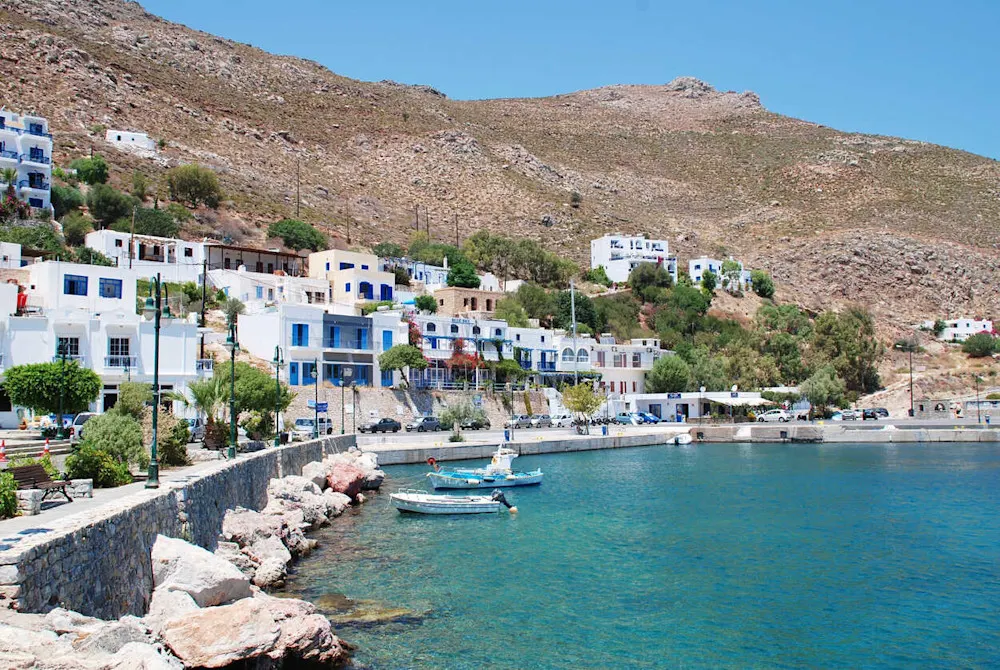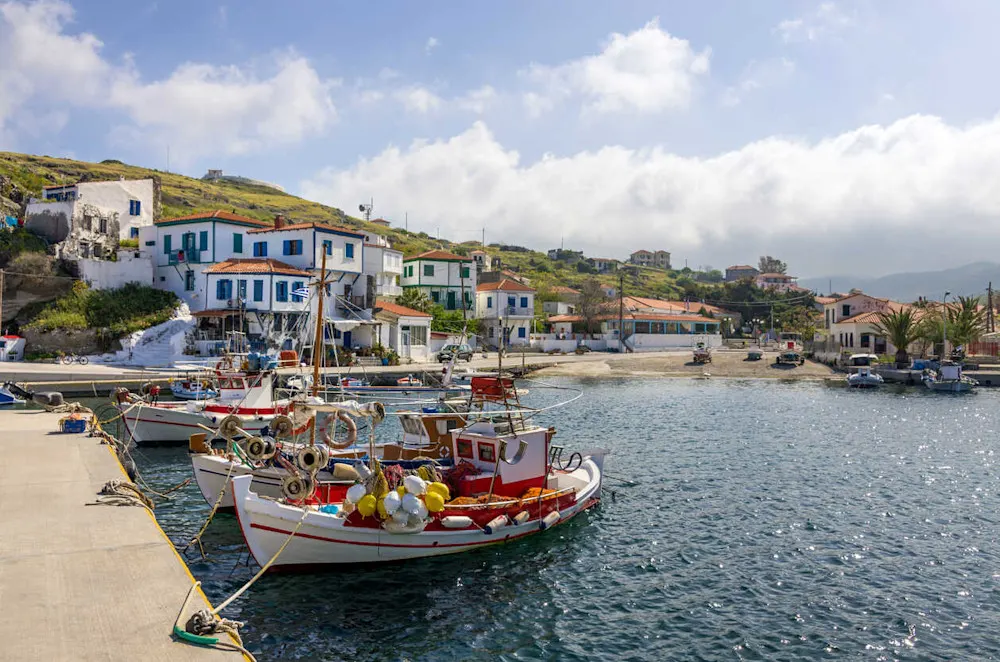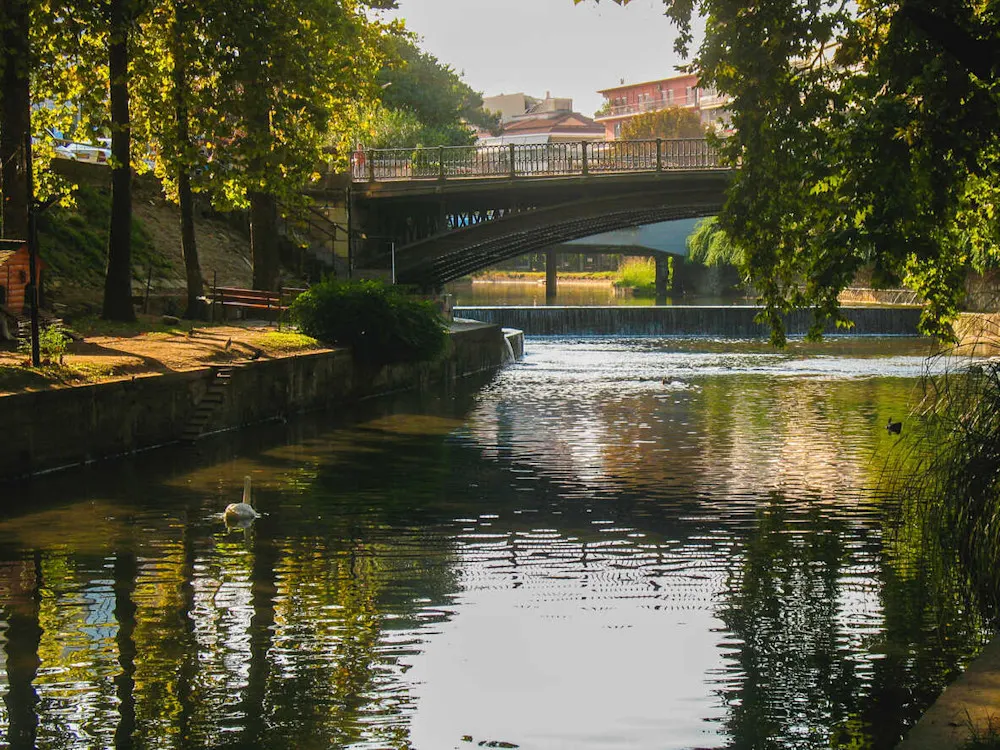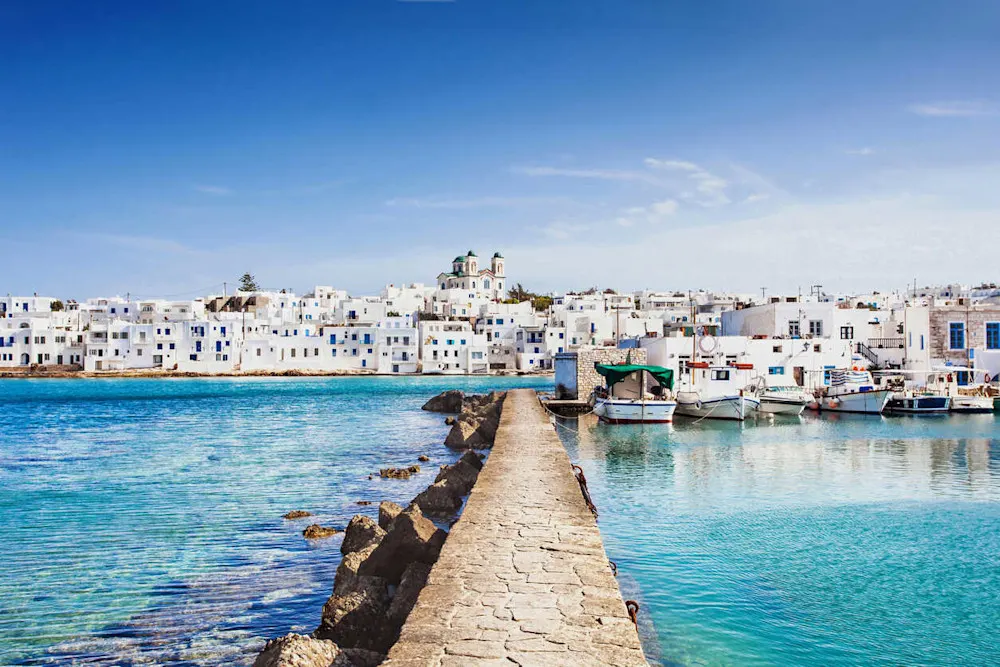When I moved to Greece more than a decade ago, I was a little shocked by how far behind the country seemed when it came to green living. Plastic bags were handed out like candy. Single-use bottles filled every trash bin. Composting? Nonexistent. Recycling felt more like wishful thinking than a real solution.
But that Greece is changing.
Today, from wind-powered mountain villages in the north to zero-waste islands in the south, this country is quietly emerging as a surprising leader in sustainability. It’s aiming to slash greenhouse gas emissions by 58% by 2030, and to reach full energy independence and carbon neutrality by 2050.
If living more sustainably matters to you, Greece is well worth a closer look. Beyond the ancient ruins and timeless culture, a greener, forward-thinking nation is taking shape. Let’s explore how.
Get Your Free Greece Report Today!
Get Your Free Greece Report Today!
Learn more about a slower pace of life in Greece and other countries in our free daily postcard e-letter. Simply enter your email address below and we'll also send you a FREE REPORT — Retire in Greece—Find Your Dream Retirement in This European Archipelago.

By submitting your email address, you will receive a free subscription to IL Postcards, Overseas Dream Home, The Untourist Daily and special offers from International Living and our affiliates. You can unsubscribe at any time, and we encourage you to read more about our Privacy Policy.
Tilos: The World’s First Zero-Waste Island

Tilos, a small island nestled between Kos and Rhodes in the Dodecanese, made global headlines in 2023 when it became the world’s first zero-waste island. That same year, it earned the Zero Waste Cities Certification, an impressive feat for any community, let alone one with fewer than 1,000 full-time residents.
The journey toward this international achievement began in 2021 when Tilos partnered with Polygreen, a circular economy company, to launch the “Just Go Zero” initiative. The goal wasn’t just to eliminate landfill waste but to shift people’s everyday habits around consumption and disposal. Like in most circular economies, the objective was to create habits where products, materials, and resources would be reused, repaired, refurbished, and recycled for as long as possible.
The challenge was real. While Tilos maintains a small local population, its numbers swell to more than 13,000 during peak tourist season. Before the project, nearly 87% of the island’s waste was dumped into landfills, a system that was both expensive and unsustainable.
Today, things look very different. Waste is carefully sorted at the source. Recyclables, compostables, and reusable materials are all processed locally, and anything left over is handled in the most sustainable way possible. The landfill? No longer needed.
What makes this story even more remarkable is the island-wide buy-in. The island launched educational campaigns and local incentives, creating a strong sense of island pride that transformed attitudes about consumption and waste. What could have been a bureaucratic challenge became a community success story, and little Tilos serves as a model of what is possible when a community comes together with a common “zero waste” goal.
(This 3-minute video might inspire you to visit Tilos to see it all in action.)
Agios Efstratios: Greece’s First Fully Renewable Energy Island

If renewable energy is your thing, you’ll want to keep an eye on Agios Efstratios, also known as Ai Stratis, a quiet island nestled between Lesbos and Lemnos in the northeastern Aegean Sea. With just 250 residents, this low-profile speck of land made big news in 2024 when it became the first Greek island to run entirely on renewable energy for several consecutive hours.
The island’s green journey began in 2010, backed by EU funding and the Greek government, under the “Ai Stratis – Green Island” initiative. With no link to the mainland grid, a tiny year-round population, and a dependence on noisy, expensive diesel generators, Agios Efstratios was the perfect candidate for a clean-energy pilot.
Fast forward to today, and the island draws power from a smart blend of wind turbines, solar panels, and energy storage systems. The result? A stable, sustainable energy supply—and even free district heating for local homes. This isn’t just about cutting emissions; it’s about improving quality of life and proving that even the most remote communities can achieve energy independence.
Agios Efstratios has become a blueprint for the future. Other Greek islands, like Astypalaia, are already following its lead as Greece accelerates its push toward climate neutrality and self-reliance.
Get Your Free Greece Report Today!
Get Your Free Greece Report Today!
Learn more about a slower pace of life in Greece and other countries in our free daily postcard e-letter. Simply enter your email address below and we'll also send you a FREE REPORT — Retire in Greece—Find Your Dream Retirement in This European Archipelago.

By submitting your email address, you will receive a free subscription to IL Postcards, Overseas Dream Home, The Untourist Daily and special offers from International Living and our affiliates. You can unsubscribe at any time, and we encourage you to read more about our Privacy Policy.
Anavra: The Mountain Village Powered by Wind
Everyone loves a good comeback story, and Anavra’s revival is worthy of a Hollywood script. Perched high on the slopes of Mount Othrys in Central Greece, this once-struggling village of around 700 residents has become a beacon of rural sustainability and economic revival.
Just a couple of decades ago, Anavra faced steep challenges: unpaved roads, livestock roaming the town center, no local school, and few economic prospects. That began to change in the early 2000s, thanks to the vision of Dimitris Tsoukalas, a UK-educated native who returned to Greece to revive his hometown.
With funding from the European Union and a clear strategy, Anavra installed 20 wind turbines, enough to produce more electricity than it needed. By selling the surplus power back to the national grid, the village created a reliable revenue stream that it poured into essential infrastructure. Roads were paved, schools and clinics built, and public services dramatically improved. Unemployment dropped to nearly zero. Today, Anavra enjoys one of the highest per capita incomes in Greece.
But the village didn’t stop there. It embraced sustainable livestock farming and invested in biogas facilities that turn animal waste into energy, further reducing pollution and reinforcing a closed-loop local economy. Today, Anavra is celebrated in EU sustainability reports as a bright example of green rural innovation proving that smart, community-led change can power a sustainable future.
Trikala: The Biking Capital of Greece

As cities around the world reimagine sustainable urban living, Trikala stands out as a forward-thinking leader. Located in central Greece, about 205 miles (330 km) north of Athens, this city of 80,000 has earned a national reputation as one of Greece’s most bike-friendly cities. With its flat terrain, riverside charm, and thoughtful city planning, Trikala is often called the “Amsterdam of Greece.” The comparison may be bold, but the city’s dedication to cycling is very real.
Trikala boasts three dedicated bike paths, a well-used public bike-sharing system, and an estimated 30,000 bicycles, roughly one for every 2.5 residents. Cycling isn’t just for leisure here; it’s a central part of everyday life.
The city’s sustainability efforts don’t stop at bikes. Trikala has invested in green roofs, solar-powered street lighting, and energy-efficient public buildings. It also gained international attention in 2015 when it launched one of Europe’s first autonomous public transport pilots: a driverless bus that still operates today. Not surprisingly, Trikala is frequently invited to share its model at global conferences on smart, green cities.
For those dreaming of a bike-friendly, eco-conscious city with modern amenities and a relaxed pace of life, Trikala offers a glimpse of what sustainable living in Greece can look like.
Paros: Pioneering a “No Plastic” Future

Best known for its turquoise waters and breezy windsurfing scene, Paros made headlines in 2019 for a different reason: it set out to become the first plastic-free island in the Mediterranean.
With support from the non-profit Common Seas and the local municipality, Paros launched the Clean Blue Paros initiative, a multi-pronged campaign aimed at eliminating single-use plastics. The island banned plastic straws and bags, introduced reusable alternatives, and overhauled its waste collection and recycling systems to better serve both locals and summer visitors.
The results were promising. Many cafés, restaurants, and hotels have largely transitioned to biodegradable or reusable products, and public awareness of plastic waste has grown noticeably. Perhaps most importantly, Clean Blue Paros is being studied as a model for other Greek islands, helping to shape broader national strategies on plastic reduction.
Challenges remain, and while consistent participation from all residents is an ongoing effort, anyone seeking a community where values align with sustainability and innovation should consider exploring Paros.
Greece’s Green Transformation
These success stories are not isolated but rather signs of a broader shift happening across Greece. Local governments, often in partnership with European institutions, are driving much of this innovation, making the Greek ecological movement decentralized and dynamic.
Of course, challenges remain. Waste management remains a significant issue in many regions, particularly during the peak tourist season. Infrastructure on some islands lags behind, and national coordination is sometimes lacking. But examples like Tilos, Agios Efstratios, Anavra, Trikala, and Paros demonstrate that progress is not only possible but already underway. The real challenge will be scaling these successes and ensuring they are resilient in the face of climate change and economic pressures. The good news is that the seeds have clearly been planted.
The encouraging news: the groundwork is in place.
A New Identity for Greece
As countries everywhere wrestle with the climate crisis, Greece offers a powerful glimpse of what’s possible when communities, governments, and visionaries work in sync. The ecological revolution isn’t coming—it’s already happening. And in Greece, it has found fertile ground.
Get Your Free Greece Report Today!
Get Your Free Greece Report Today!
Learn more about a slower pace of life in Greece and other countries in our free daily postcard e-letter. Simply enter your email address below and we'll also send you a FREE REPORT — Retire in Greece—Find Your Dream Retirement in This European Archipelago.

By submitting your email address, you will receive a free subscription to IL Postcards, Overseas Dream Home, The Untourist Daily and special offers from International Living and our affiliates. You can unsubscribe at any time, and we encourage you to read more about our Privacy Policy.
